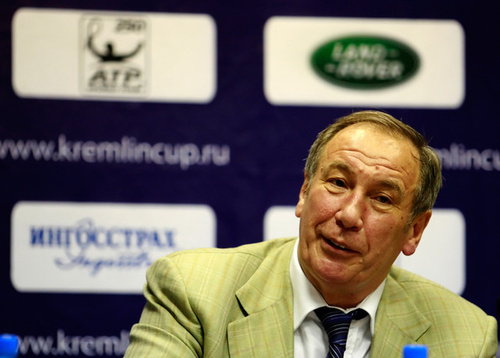Don't miss any stories → Follow Tennis View
FollowFed Cup Final Reveals Russia's Decline, Scheduling Conflicts
When the Russian women arrived on the WTA Tour, they did so in droves. They won majors and Olympic medals, and they occupied the top pages of the world rankings. Perhaps most impressively, they had depth. As late as August 2008, there were six Russian women gracing the world's top 10.
Five years later, the scene is much different. Once boasting 15 players in the top 100, Russia has returned to the pack with just six players in the top 100. It has slipped behind the United States and Germany when ranking the total number of players inside that elite. Spain, Italy and the Czech Republic are breathing down its neck.
Five years removed from the height of its dynasty, the once-premier nation in women's tennis is reduced to sending little more than a junior varsity squad to contest the final of the premier team competition in the sport. To say that the Fed Cup final, set to begin Saturday, is a mismatch on paper is putting it mildly.
Italy, contesting its fifth Fed Cup final in eight years, features a full-strength squad. Led by Sara Errani and Roberta Vinci, the team also features the veteran presence of Flavia Pennetta and Karin Knapp.
Opposing them is a Russian squad with a combined singles ranking of 872. Alexandra Panova, the highest-ranked team member at No. 136, will be making her Fed Cup debut along with teenagers Irina Khromacheva (No. 236) and Margarita Gasparyan (No. 315). Rounding out the team is current No. 183 Alisa Kleybanova. Russian team captain Shamil Tarpischev might be banking on Kleybanova to conjure up some of her elite-level best to keep the visitors within striking distance. But she is two years removed from her career-high ranking of No. 20 and on the comeback trail from Hodgkin's lymphoma.
Even with a strong effort from Kleybanova, the prognosis does not look good.

“Speaking frankly, we have practically no chances to win,” Tarpischev said earlier this week. “We’re going there not to win but to give our young players experience.”
So where are the Russians' heavy hitters, their varsity players?
As far as the six Russians in the top 100 go, Maria Sharapova, Ekaterina Makarova and Nadia Petrova are all sidelined with injuries. Two-time major champion Svetlana Kuznetsova refused to play for personal reasons. Maria Kirilenko, Elena Vesnina and Anastasia Pavlyuchenkova all elected to take part in the WTA's Tournament of Champions in Sofia, Bulgaria. The event has conflicted with the Fed Cup final in each of the past four years, and it provides something that Fed Cup cannot guarantee: prize money and ranking points.
The Fed Cup debacle could indicate a larger issue in the Russian tennis federation regarding organization, player prize money and fund distribution. Beyond the cracks in a system that has produced dozens of successful players over the past decade, the situation gives insight onto a recurring theme. Regardless of nationality, scheduling conflicts are often an issue when a player is looking to make herself or himself available for Fed Cup and Davis Cup. For example, Vinci also qualified to play in Sofia but chose instead play singles and doubles for Italy.
In an individual sport like tennis, players are taught to prioritize themselves, their careers and their long-term goals. The phrase, “It takes more than skill to play for your country,” is often thrown around as the official Fed Cup motto and suggests that playing with heart and passion is just as important. For players who represent their countries week-in and week-out, tough decisions need to be made when there is more than just national pride at stake.










